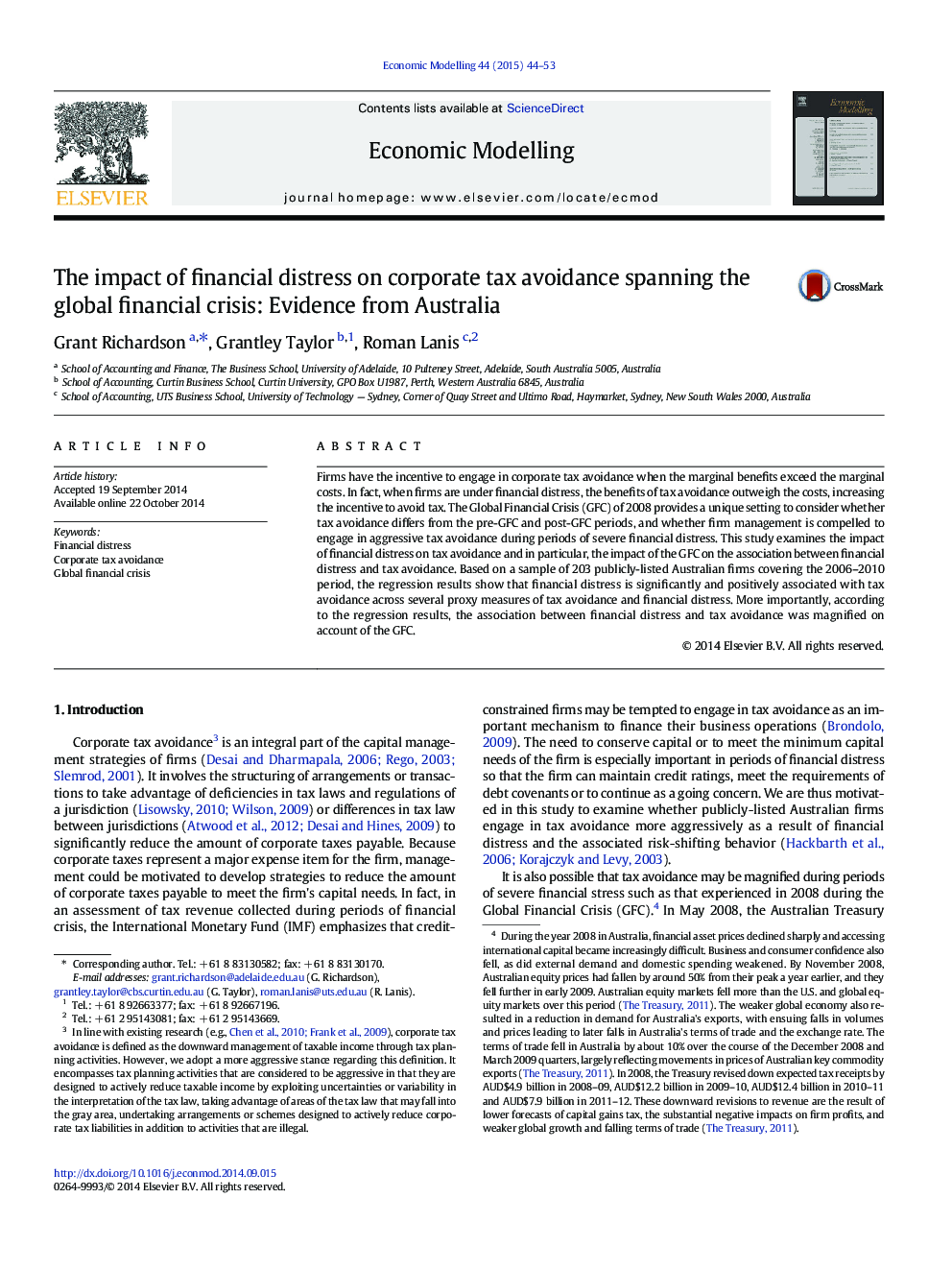| Article ID | Journal | Published Year | Pages | File Type |
|---|---|---|---|---|
| 5054058 | Economic Modelling | 2015 | 10 Pages |
â¢Financial distress, corporate tax avoidance and the GFC are examined.â¢Financial distress is positively associated with tax avoidance.â¢The association between financial distress and tax avoidance was magnified due to the GFC.
Firms have the incentive to engage in corporate tax avoidance when the marginal benefits exceed the marginal costs. In fact, when firms are under financial distress, the benefits of tax avoidance outweigh the costs, increasing the incentive to avoid tax. The Global Financial Crisis (GFC) of 2008 provides a unique setting to consider whether tax avoidance differs from the pre-GFC and post-GFC periods, and whether firm management is compelled to engage in aggressive tax avoidance during periods of severe financial distress. This study examines the impact of financial distress on tax avoidance and in particular, the impact of the GFC on the association between financial distress and tax avoidance. Based on a sample of 203 publicly-listed Australian firms covering the 2006-2010 period, the regression results show that financial distress is significantly and positively associated with tax avoidance across several proxy measures of tax avoidance and financial distress. More importantly, according to the regression results, the association between financial distress and tax avoidance was magnified on account of the GFC.
